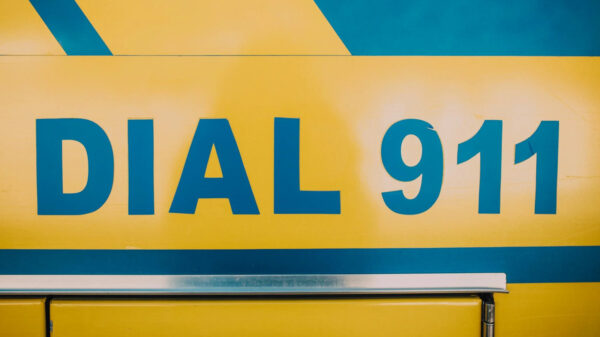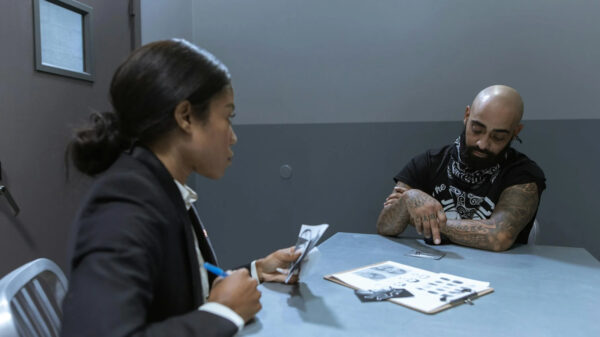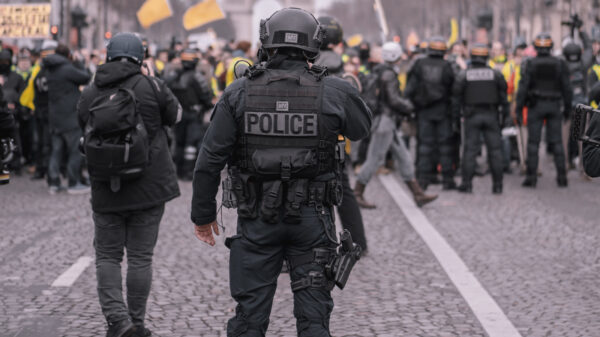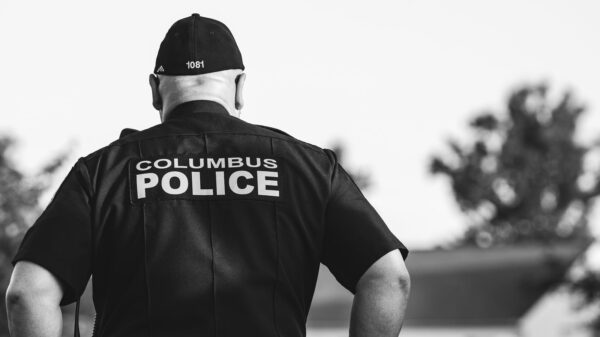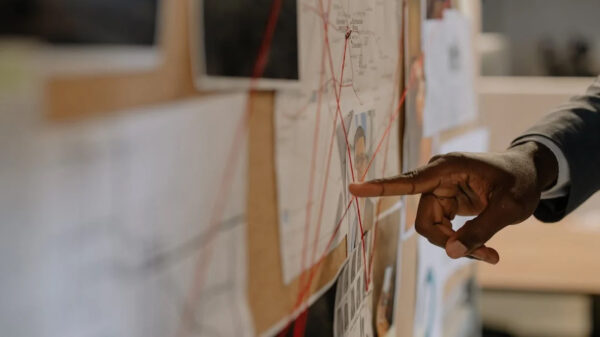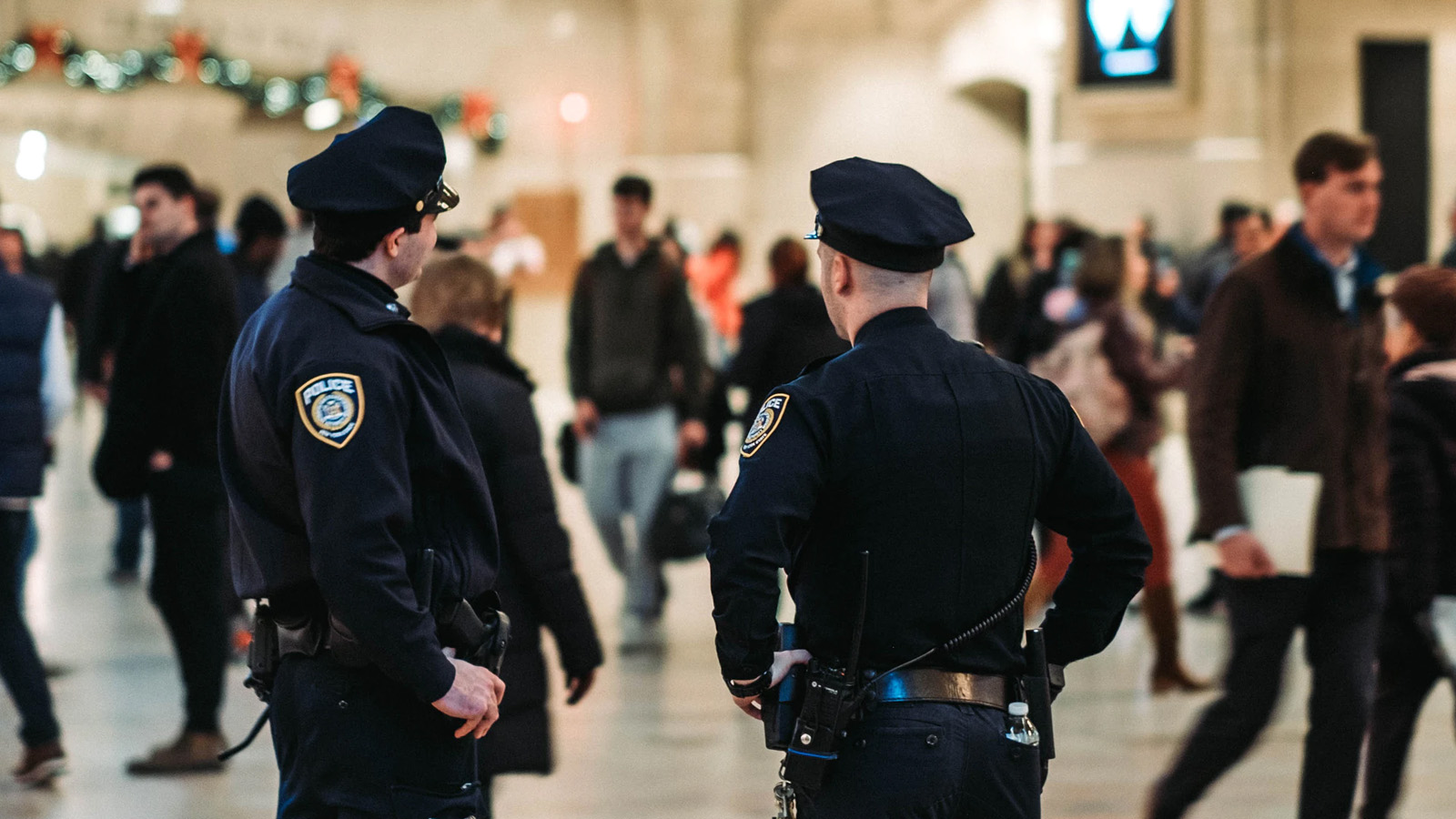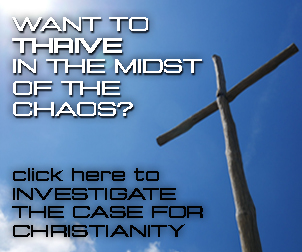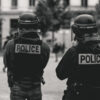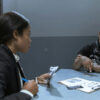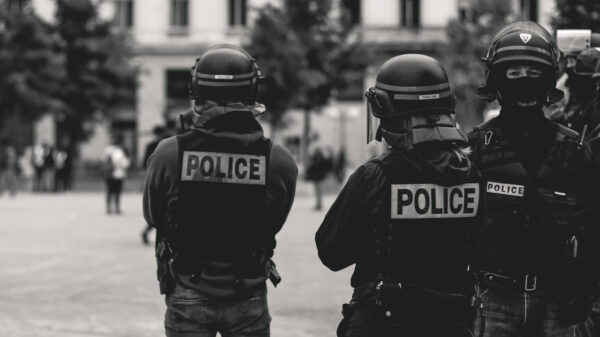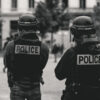I’ve tried to accurately communicate the nature of police work, but for every person who asks for my police perspective, there’s another who wants my advice as a pastor and Christian Case Maker. In this article, I’d like to outline six things each of us, as citizens and Christians, can do to respond to the growing dilemma:
1. Educate with a purpose. I’m often surprised to witness the vitriol and intensity of those who are ready to debate the issues before they’ve taken the time to examine the facts closely. It’s easy to find yourself in an argument without truly understanding the perspective of those involved. A balanced education requires us to view the issues from both sides of the coin. All of us should take the time to do the research and be informed. As Christians, however, our desire to be educated must involve more than merely the consumption of information. Our education must have a goal: empathy and compassion. When Jesus saw the crowds of people in the region near Capernaum, He “had compassion for them, because they were harassed and helpless, like sheep without a shepherd” (Matthew 9:36). These people weren’t yet disciples of Jesus, and they likely didn’t yet agree with what Jesus’ had to say. But Jesus understood their situation, and this knowledge informed His response. The information resulted in compassion and empathy, in spite of the fact the crowds may not have been in agreement with Jesus or his disciples.
If you’re on one side of this debate or another, you may be having difficulty feeling empathy for those with whom you disagree. Take some time to educate yourself. There’s enough human struggle on both sides to warrant your understanding and compassion. Let me give you two examples of how a brief education can help you rethink your vitriol. A law enforcement agency once reached out to an African American civil rights leader and invited him to participate in a day of “Shoot or Don’t Shoot” training. This realistic exercise placed the civil rights leader in several law enforcement scenarios that required him to make a quick decision about the use of force. In one scenario he acted too slowly and was “killed” by the role-playing “suspect”. In a second scenario he “shot” an unarmed “suspect” role-player. By the end of the day, this educational experience helped the leader to empathize with the burden of the officers. In a similar way, an experiment was once conducted to see if people treated a little girl differently if they thought she was underprivileged or homeless. The same girl was dressed as a lost, upper class child and as a lost, under-privileged, homeless girl. She was treated in two remarkably different ways. People asked the better-dressed girl if they could help her find her parents, but walked by the homeless girl as though she didn’t exist. After watching this video, I began to understand the inherent bias we express toward certain people groups. As a result, it’s now easier for me to empathize with those I used to shun, ignore or vilify. Educate yourself about the plight of those with whom you disagree. You just might feel your heart grow.
2. Love the other side because there is no “other side”. One way to bridge the divide is to remember that what we have in common far exceeds what separates us. As Christians, we should know this better than anyone. Each of us, regardless of race, has at least three important things in common. First, we are created in the image of God (Genesis 1:27). Second, we are deeply rebellious and lost in our sin nature (Romans 3:23, 1 John 1:8). Finally, every one of us is desperately in need of a Savior (Ephesians 2:1-7). Regardless of any other differences we may have, these three foundational truths are common to all of us. I bet you’re a lot different than many members of your own family, but somehow you manage to come together on holidays and get along. Why? Because you have something important in common. Guess what? All of us may be different racially, economically or culturally, but we also have something important in common: we are members of the human family. There is no “other side” when it comes to family. All of us have something for which we can be praised, and something we can do better.
Take an honest look at your own shortcomings before you point a finger at others, then adopt Jesus’ view toward those you’ve thought of in an adversarial way. Jesus was, after all, the master of “counter-intuitive compassion.” He famously taught, “You have heard that it was said, ‘You shall love your neighbor and hate your enemy.’ But I say to you, ‘Love your enemies and pray for those who persecute you, so that you may be sons of your Father who is in heaven’” (Matthew 5:43-45). As Christians, we’re called to love those we previously described as our enemies. Let’s talk the talk and walk the walk. Love the people on all sides of this issue and look for what we have in common rather than what might divide us.
Take an honest look at your own shortcomings before you point a finger at others, then adopt Jesus’ view toward those you’ve thought of in an adversarial way. Share on X
3. Be a patient leader. Most of us understand the value of patience, as long as it’s required of someone else. In the instantaneous Information Age in which we live, the virtue of “measured response” has become a lost art. But Scripture is clear about the value of being “quick to hear, slow to speak,” and “slow to anger” (James 1:19). This is an important quality for good leaders. In my career, I worked for three different police chiefs. Each of them understood the value of patient, appropriate, disciplined response. If a questionable incident or shooting occurred, they would address the press within 24 hours and tell reporters that the officers involved had been removed from the field pending investigation, and that the full resources of our agency (and the DA’s office, if necessary) would be mobilized to determine the facts of the case. If asked to comment specifically on the “rightness” or “wrongness” of the incident, these leaders refrained from taking a positon or making any kind of statement in one direction or the other. They remained neutral and told reporters there would be nothing further to report until the investigation was conducted. While this measured response usually frustrated the press, it was a sign of true leadership.
If you’ve ever been involved in an investigation of this kind, you know one thing for sure: “The one who states his case first seems right, until the other comes and examines him” (Proverbs 18:17). It’s a fool’s game to think you know the truth before you’ve taken the time to talk to everyone, examine every perspective, and collect all the facts. Good leaders don’t jump on social media and make a provocative, early statement. Leaders should be patient, measured and disciplined. It’s time for all of us, as Christians, to be leaders. Next time you see something in the press, even if it’s a short video clip that appears to be decisive, resist the temptation to draw an immediate conclusion. Let the process run its course, there will be plenty of time to respond later with more accuracy.
Next time you see something in the press, even if it’s a short video clip that appears to be decisive, resist the temptation to draw an immediate conclusion. Share on X
4. Rely on prayer and the power of God. It might sound trite for a Christian to suggest prayer as the proper response to a crisis, but at the risk of saying something obvious, let me remind you of two important aspects of prayer. First, God alone is powerful enough to change the hearts of everyone involved in our present dilemma. Even though I know this is true, my actions are often contradictory; I know I can “with confidence draw near to the throne of grace” to “receive mercy and find grace to help in time of need” (Hebrews 4:16), but I often fail to do so. Maybe you’re the same way. If, however, you’re frustrated that you don’t seem to be in a position to effect the kind of change you’d like, maybe it’s time to summon someone who is (and can).
There’s a second important truth related to prayer: communal prayer has the power to unify. There’s plenty of evidence to support this truth. Officers who pray together before watch are unified as a team, despite their diverse racial and cultural backgrounds. Communal prayer reminds us of our common dependence on God. In a similar way, we’ve seen a number of examples of prayer unifying those who might otherwise be dangerously opposed. When one Black Lives Matter group met a counter-protest group, the potential for conflict was palpable. But when members of both groups came together to hug and pray for one another, they reclaimed their identity as brothers and sisters in Christ. Prayer does more than bend the ear of God; it bends our hearts toward one another. Take the time to pray for our situation, and whenever possible, seek opportunities to pray together.
Take the time to pray for our situation, and whenever possible, seek opportunities to pray together. Share on X
5. Help agencies train and hire. Most concerns related to law enforcement personnel revolve around two important questions: (1) Will our police officers act ethically, and (2) Will they use an appropriate level of force? As it turns out, police agencies can train their officers in both of these areas. As I mentioned in my last article, my Chief asked me to develop a six-session ethics program for our agency. Prior to this, we’d never engaged in a systematic, prolonged approach to ethics training. We were always in compliance with our state regulations related to ethics training, but we wanted to raise the bar and do even more, so we developed our own program. In a similar way, our agency also decided to exceed the state requirements for defensive tactics training by using several professional grapplers and force experts who happened to already work for our agency.
If you’re suspicious about police officers and their use of force, you might think it unwise to offer them additional training in this area. But, the more proficient an officer becomes in his or her use of force, the less likely they are to over-react when confronted physically. If you don’t feel confident grappling with a suspect, you’re all too likely to resort to a higher level of force in an effort to control the situation and defend yourself. Many shootings involving unarmed suspects are simply the result of an officer being afraid he or she was going to be fatally overpowered. The better we train police officers to handle themselves physically, the more likely they are to use an appropriately low level of force. But, in order to become proficient in this area, officers have to train regularly. That’s not an inexpensive proposal. If we want our police officers to be the most ethically and physically responsible officers they can be, we’ll need to support an increase in their training budget. As citizens, we need to make this clear to our local city governments.
If we want our police officers to be the most ethically and physically responsible officers they can be, we’ll need to support an increase in their training budget. Share on X
We also need to address another increasingly difficult task facing local police agencies: hiring. When my son applied for his position five years ago, he was one of three-hundred candidates. Of these potential hires, only five passed the grueling testing and vetting process and made it to the Police Academy. Only three survived the Academy. Only two survived the training that followed. It took three-hundred applicants (and approximately one year) to produce two officers. That’s what it was like five years ago; it’s a lot more difficult today. Given the increasingly hostile climate and negative view of police officers, fewer good candidates are interested in law enforcement. We’re lucky to get eighty people to show up for the first battery of tests. As a result, agencies are shrinking. You and I can help, however. It starts with something simple: resist the temptation to vilify the entire law enforcement community when single officers make a mistake or do something unethical. This is still a noble profession. This is still the kind of calling you’d be proud to have your children answer. And people on both sides of “the divide” are invited to participate. Police Chief, David Brown (a devout African American Christian), reminded protestors following the Dallas shootings several years ago they could “become a part of the solution.” He told them to “serve your community, don’t be a part of the problem. We’re hiring… get off that protest line and put an application in, and we’ll put you in your neighborhood and we’ll help you resolve some of the problems you’re protesting about.”
6. Be courageous enough to seek (and address) the root causes. When a paramedic responds to someone who’s having a heart attack, he or she responds to the attack, not the cause; the paramedic has no control over the bad eating habits or genetic history that preceded the attack. In a similar way, when a police officer responds to a violent assault, he or she confronts the attacker, not the underlying cause of the assault; the officer has no control over the social or environmental conditions that preceded the behavior. Police officers respond and react to crimes committed in their city, they don’t cause or create the conditions that resulted in the crime.
Politicians, sociologists and philosophers can debate the underlying causes for crime, and many have attributed some form of systemic racism as the chief culprit. Let me also offer an explanation that is grounded in my own anecdotal experience and in a number of important studies. When I served on my agency’s Gang Detail in the early 1990’s, I was in constant contact with a wide spectrum of gang members. We engaged white, Hispanic, Asian and African American gangsters from every economic background. I was interested in what caused these young men to become gangsters in the first place. It certainly didn’t seem to be something in their cultural, racial or economic lineage; they came from a very diverse set of circumstances. The more I got to know these young men, the clearer the problem became: all of them suffered from what I call, “lack of dad.”
Some of their fathers were uninvolved, alcoholic or “deadbeat” dads. Others were workaholics who were never home. Some were habitually incarcerated. Others simply hadn’t stuck around long enough to raise their sons. Over and over again I saw the same thing: young men who were wandering without direction or moral compass, in large part because they didn’t have a father at home to teach them. Many studies have confirmed my own anecdotal observations.
The evidence is clear: kids do best, in nearly every metric, when raised by two biological parents in a committed, low conflict setting. One study found that “Children with involved fathers have better social skills, more successful relationships, stronger self-esteem, more self-control and higher grades. They are less likely to be overweight, suspended from school, bully others, take drugs, engage in risky sexual behavior or commit crime.” Intact families guided by engaged fathers are the remedy, at least in my view. When I first recognized these gangsters all suffered from “lack of dad,” I started to assess my own paternal leadership. Was I leading my sons? Was I available and attentive? Was I modelling what it means to be a man, a husband and a father? Was I impressing God’s Word on my children and talking about it with them when sitting at home, walking along the road, lying down or sitting up (Deuteronomy 6:6-9)? If we want to confront one of the most prevalent root causes of crime, we need to model fatherhood for our culture and advocate policies that affirm and support families (and fatherhood) nationally.
If we want to confront one of the most prevalent root causes of crime, we need to model fatherhood for our culture Share on X
This is a crisis we can actually address, if we choose to. I wasn’t raised in an environment in which my father was present every day. My parents divorced when I was three. But he was an important role model for me when we were together, and my grandfather, Warner, was a paternal icon. Christians have the power to come along those young men who are fatherless and provide them with the role model they need. Are we willing to do it?
This article is among the longest pieces I’ve written for this website, yet neither truly does justice to the complexity of the problem or potential solutions. But they’re a start. The bar is high for police officers, and it’s just as high for Christians. We’ll have no voice in our society unless we commit to the principles we are suggesting for others. Are we willing to surrender our pride? Are we willing to love our “enemies”? Are we willing to put our money where our mouths are? Are we courageous enough to address the real issues? As Christians, we must lead, and our response to this growing dilemma must reflect both the mercy and justice of God.
Save
Save
Save
Save
Save
Save
Save
Save
Save
J. Warner Wallace is a Dateline featured cold-case homicide detective, popular national speaker and best-selling author. He continues to consult on cold-case investigations while serving as a Senior Fellow at the Colson Center for Christian Worldview. He is also an Adj. Professor of Christian Apologetics at Talbot School of Theology, Biola University, and a faculty member at Summit Ministries. J. Warner presently serves as a chaplain for his agency and holds a BA in Design (from CSULB), an MA in Architecture (from UCLA), and an MA in Theological Studies (from Gateway Seminary).










